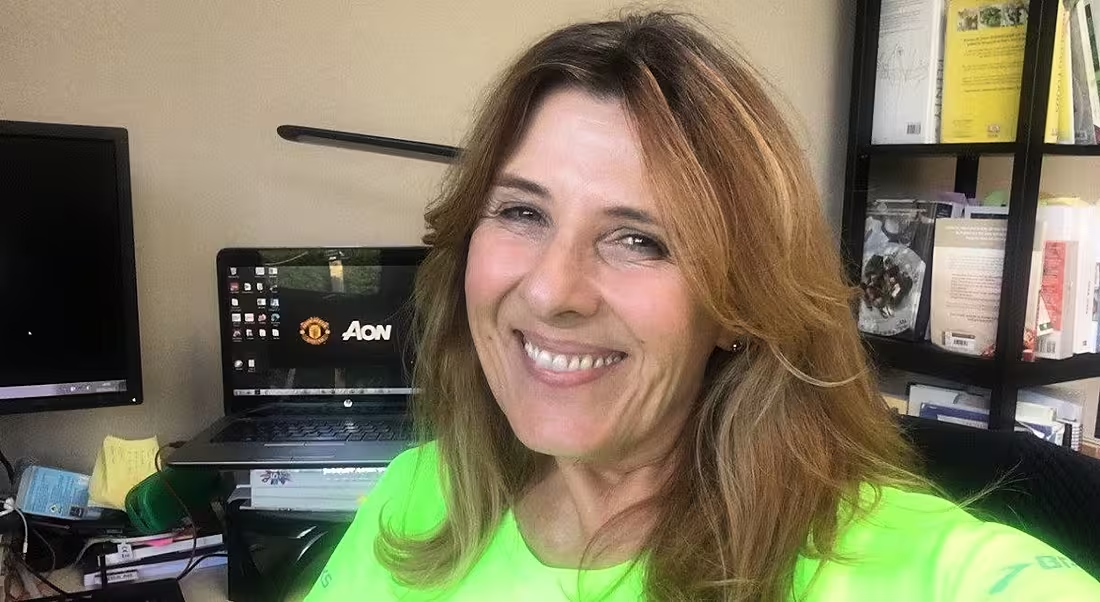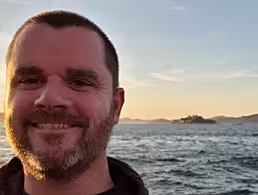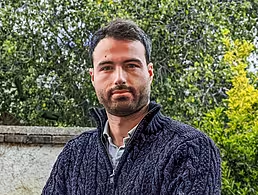Aon’s Anna Coyle discusses how she came to work in analytics and why the evolution of data is critical for solving the world’s problems.
When Anna Coyle graduated with an economics degree, she had no clear career path in mind. While not traditionally a STEM subject, economics taught her how to analyse a problem, which became one of the most important skills as she progressed into the area of data and analytics.
Now, Coyle is a product manager at the Aon Centre for Innovation and Analytics (ACIA), where she works with colleagues and clients to develop analytics products using multiple sources of data that can drive decisions around risk mitigation and transfer.
‘Using data to enable better decision-making has never been more important’
– ANNA COYLE
What drew you to a career in data and analytics?
I have always been interested in using data analysis as part of my decision making, and I arrived in the field of product somewhat by accident. Having worked with Virgin Media for more than 10 years, I set up and led a programme office to deliver the firm’s product roadmap in Ireland.
In 2014 when I was at a crossroads in my career, I enrolled in a MSc in data and analytics to learn new skills and ways of understanding and using data. At the time, the term data scientist was only beginning to be used. While the first few weeks were a big shock to the system, I really enjoyed the experience. It was hugely challenging; I had not studied at this level since my undergraduate days.
Extending into data and analytics as a practice was a natural step for me, but it was unexpected to find myself really loving the learning experience. The realm of academic research is hugely interesting and helps me think about new ways of seeing problems. I have undertaken other postgraduate courses since then including product management with TU Dublin and I am looking forward to continuing this journey.
What’s the best thing about working in this area?
Working with Aon clients to understand the challenges and risks faced in their industries and coming up with new ways to solve or mitigate these. I’m a curious person by nature and the diversity of industries means we can be working with firms to look at risk in supply chains for one product, to understanding the risk of litigation in product liability for another.
It is continuous learning, and increasing your knowledge of the different risks and the factors that influence them is hugely satisfying. One of the biggest risks ahead is how to tackle the sustainability crises and the challenges this presents will be immense for us all. It feels like we really can make a difference with what we do. We don’t just get to learn about these risks, we’re actively addressing them.
What’s the most exciting development you’ve witnessed in the data sector since you started working in it?
I remember one of my lecturers in college saying: “Economics have their models, however econometrics are still waiting on their data.”
Well, now data is there in spades and this availability and diversity has to be one of the most noticeable changes over the past number of years. This and the growth of tools that enable non-technical users to get value from data are the most exciting developments I’ve witnessed.
Using data to enable better decision-making has never been more important, and to get real value you need to have business understanding embedded in the analytics process.
What aspect of your job did you struggle to get to grips with?
Enrolling on a master’s science course without having any coding experience at all was one of my biggest challenges in recent years. YouTube was a huge resource for me at this time as I had to learn the basics of coding.
I watched one series of videos on configuring SSIS packages so many times I could nearly recite it. The experience was humbling, it was almost like learning to read or write again, you are right back at the beginning. My knowledge of the topic was beginner – if I made a mistake, I didn’t have enough background knowledge to know where to troubleshoot and fix it.
The development of applications that provide ‘plug and play’ analytic capability, such as Alteryx, were a godsend. They bring analytics closer to business users, which is critical to unlocking value through analytics.
What’s been the hardest thing you’ve had to face in your career?
Transitioning from a management role in an industry that I knew well and had worked in for over 10 years into a totally new industry. The experience forces you to be more open to what you don’t know and not be afraid to ask more questions that everyone else knows the answer to.
In retrospect, this experience has benefited me in my current role as we deal with clients across several different industries. Having tread this path before, I now know the questions to ask and how to get an understanding of an industry quite quickly.
If you had the power to change anything within the STEM sector, what would that be?
Female representation across STEM fields is still critically low and encouraging girls to take and stick with STEM subjects in formal education may need some new thinking.
I think STEM subjects could be demystified; experimentation, questioning and problem solving are all critical skills women are great at, it’s not just about the ability to do maths or science at higher level.
I struggled with maths throughout my school years. It wasn’t until I went to university that I found I had a skill for statistics. Pathways into STEM should be lifelong, starting from the earliest education years right through to late-stage career, and I think the latter is supported through the Skillnet programmes. I feel more could be done here though to show the amazing career opportunities that STEM sector can provide.
Which of your personality traits makes you best suited to your job and this sector?
I am a problem-solver at heart, I am very curious, ideas driven and really enjoy the process of understanding a problem space and coming up with solutions.
Agile working methods are conducive to the development of new ideas and enabling a team from diverse backgrounds and skills can be an enjoyable and collaborative experience, that leads ultimately to better outcomes. Some of my most satisfying and enlightening working experiences have been in this context.
Is there something in your personal life that helps you in your job?
I have a range of interests from sports to fine arts and am fascinated by advances in technology and scientific research.
I listen to several podcasts including Futureproof on Newstalk when out for a weekend run. This stimulates your thinking when it comes to looking for new ways of tackling problems and I’ve always found that helpful. Stepping back and taking some down time encourages the creative process, and that is also key to innovating.
How do you make connections with others in the STEM community?
Industry support and networking groups are important. I joined the IRDG group a few years ago and have found this to be a valuable forum for anyone interested in driving innovation or research and development in Ireland.
They provide superb networking opportunities and shared interest sessions that enable you to learn how others are driving innovation. Academic research is another way to keep abreast of what is happening in STEM, and contacts made during college.
Has mentorship or coaching been important in your career?
Throughout my career I have been fortunate to work with some very inspirational leaders and formal mentors and to learn from them.
Having a mentor can provide an opportunity to tap into a wealth of knowledge and experience that can shorten the learning curve while also acting as a sounding board and confidant to help you identify areas for development. I would always recommend taking the time to work with a mentor if that opportunity arises.
What advice would you give to someone thinking about a career in your area?
How many times has it been said, ‘Do what you love and you will never work a day in your life’? I don’t think that means you have to love every minute of every day. My advice would be, know what motivates you, understand your strengths, then find a way where you can do that a lot, in an environment that values what you do.




